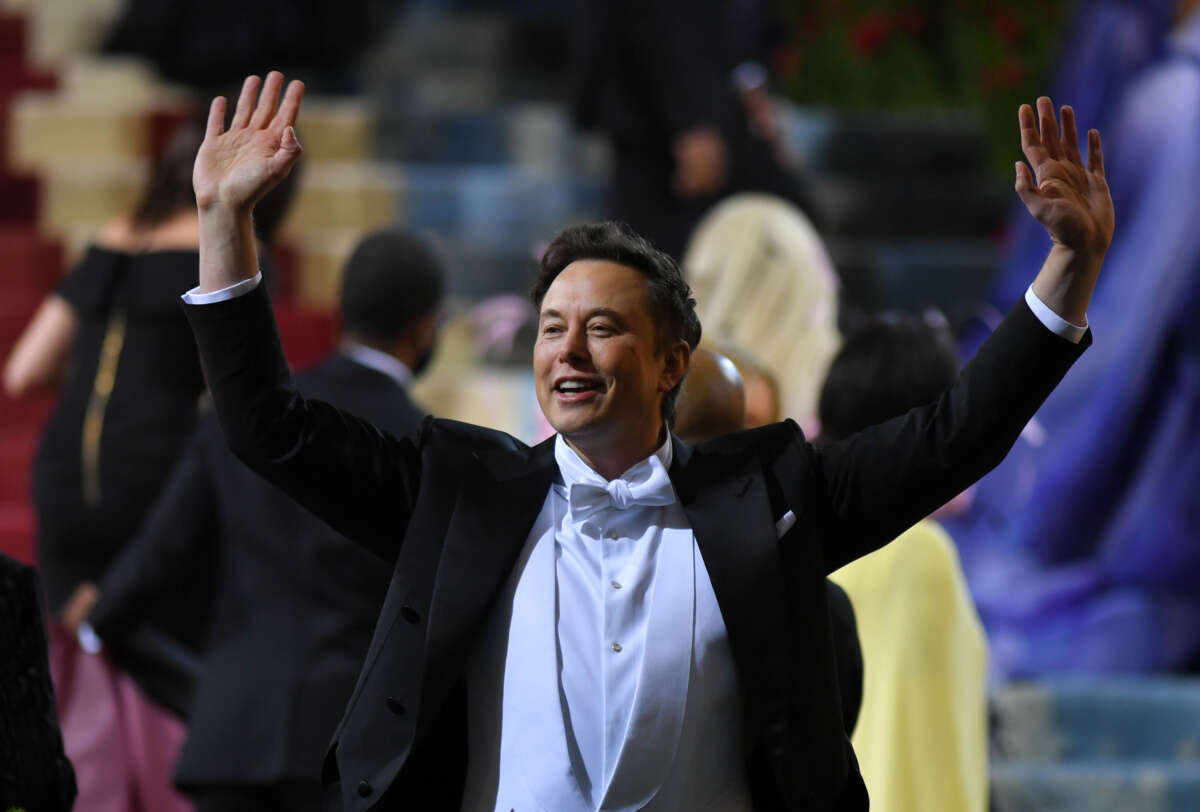Over the weekend, self-described free speech absolutist Elon Musk appeared to personally request the removal of the blue check verification for The New York Times’s Twitter account as he derided the publication’s reporting as “propaganda” and its social media feed as “diarrhea.”
On Saturday, Twitter was slated to remove blue check marks that, before Musk’s takeover, indicated that a user’s identity was verified. While the verification system was not without its flaws, Musk has further muddied the waters by allowing people to pay for a verification check, which has resulted in widespread confusion, impersonation and scamming on the website.
The mass removal of verified checks never came, however. Rather, Musk appears to have removed only The New York Times’s check so far, while rolling out more features to blur the line between paid and verified users.
The publication lost its verification status after a user, DogeDesigner, posted a meme poking fun at The New York Times for announcing that it wouldn’t be paying for verification. Two minutes later, Musk replied, “Oh ok, we’ll take it off then.”
Less than an hour later, Musk openly criticized The New York Times, a longtime target of right-wingers for its perceived left-wing lean (a lean that the left has repeatedly said is virtually nonexistent, especially in its recent coverage of transgender people).
“The real tragedy of @NYTimes is that their propaganda isn’t even interesting,” Musk wrote.
“Also, their feed is the Twitter equivalent of diarrhea. It’s unreadable. They would have far more real followers if they only posted their top articles,” Musk continued, ignoring the fact that reports estimated last year that the vast majority of Musk’s own followers are bots. “Same applies to all publications.”
Musk’s criticisms betray a fundamental misunderstanding of the way his own website’s algorithm works, and how publications structure their social media strategies in general. Publications like The New York Times often aren’t aiming for every tweet to be served to a user, but rather are aiming for their content to cast a wide net, knowing that users will be served a curated selection of their posts based on a platform’s algorithm.
Musk’s criticism also constitutes an attempt to delegitimize the free press, particularly outlets that might report accurately on the right or on Musk’s failed ventures; The Times, for instance, recently released an article detailing the erratic nature of Tesla’s self-driving feature, which has made the company the target of several lawsuits. The article, which features opinions from numerous Musk supporters, raises questions about whether or not the self-driving feature was rolled out before it was ready for public use.
That only The Times lost its verification when this move was supposed to affect thousands of users appears, then, to be a targeted attack on the publication. At the time of writing, outlets like CNN, Fox News and The Washington Post still have their check marks. Other sections of the Times like its Arts, Food and Travel sections are also still verified.
Even other prominent organizations that have said they won’t pay for Twitter Blue — the platform’s paid check mark system that is slated to cost $1,000 a month for organizations — still have their check marks. Though Politico and the White House have both said they won’t pay for Twitter Blue, both accounts maintain their check marks as of this writing.
Another change implemented by Twitter this weekend makes it impossible to tell if an organization still has its check mark because it began paying for Twitter Blue. In the past months, Twitter has allowed users to see whether a check mark was paid for or came as a result of verification — but now, the platform doesn’t distinguish between the two, making it even more difficult to tell if an account is real or made by an impersonator.
Later on Sunday, Musk derided The Times for its hypocrisy, saying that it is “incredible [sic] hypocritical” for the publication to have its own subscription service while refusing to shell out $12,000 a year for a Twitter check mark — seemingly in ignorance of the fact that The Times has a subscription to offer a service, while Musk has massively devalued the supposed service that a check mark is supposed to bring.
Musk’s move against The Times comes amid a hard right turn for the billionaire. Musk has long been a right-winger, even as he has sometimes posed as a liberal, seemingly to fit in in Silicon Valley.
But his far right politics have been on full display in recent months; since his takeover, he has implemented policies to favor far right voices, banning journalists who have criticized him and giving extremist right-wing figures exclusive access to Twitter’s internal systems in order to demonstrate his supposed reasoning for changing Twitter policies to even further favor the right.
Join us in defending the truth before it’s too late
The future of independent journalism is uncertain, and the consequences of losing it are too grave to ignore. To ensure Truthout remains safe, strong, and free, we need to raise $17,000 by midnight tonight. Every dollar raised goes directly toward the costs of producing news you can trust.
Please give what you can — because by supporting us with a tax-deductible donation, you’re not just preserving a source of news, you’re helping to safeguard what’s left of our democracy.
